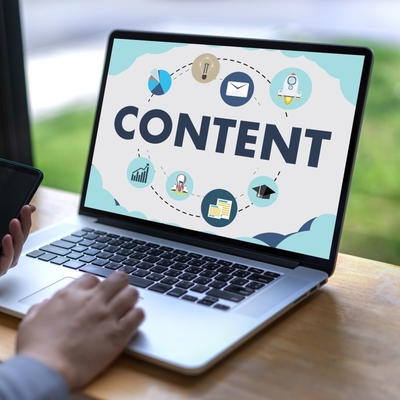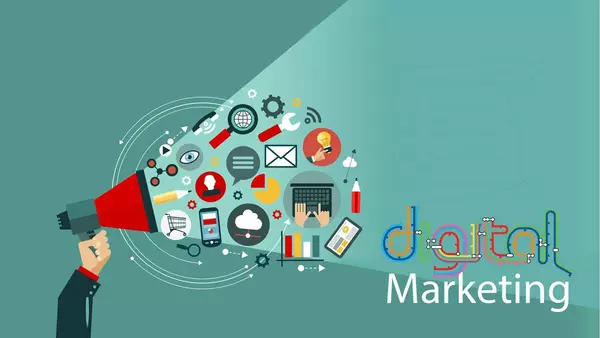Notifications
ALL BUSINESS
COMIDA
DIRECTORIES
ENTERTAINMENT
FINER THINGS
HEALTH
MARKETPLACE
MEMBER's ONLY
MONEY MATTER$
MOTIVATIONAL
NEWS & WEATHER
TECHNOLOGIA
TV NETWORKS
VIDEOS
VOTE USA 2026/2028
INVESTOR RELATIONS
COMING 2026 / 2027
ALL BUSINESS
COMIDA
DIRECTORIES
ENTERTAINMENT
FINER THINGS
HEALTH
MARKETPLACE
MEMBER's ONLY
MONEY MATTER$
MOTIVATIONAL
NEWS & WEATHER
TECHNOLOGIA
TV NETWORKS
VIDEOS
VOTE USA 2026/2028
INVESTOR RELATIONS
COMING 2026 / 2027
 siddiqa 88 -
7 hours ago -
Other -
Advanced AI Tools for Digital Marketing
AI Tools for Digital Marketing
-
8 views -
1 Comment -
0 Likes -
0 Reviews
siddiqa 88 -
7 hours ago -
Other -
Advanced AI Tools for Digital Marketing
AI Tools for Digital Marketing
-
8 views -
1 Comment -
0 Likes -
0 Reviews

In today’s rapidly evolving digital world, artificial intelligence (AI) is reshaping how businesses connect with audiences, analyze data, and craft marketing strategies. AI-powered tools are no longer a luxury—they're a necessity for marketers aiming to stay competitive. From automating repetitive tasks to delivering hyper-personalized experiences, Advanced AI Tools for Digital Marketing is at the forefront of the marketing revolution.
One of the most impactful applications of AI in digital marketing is the ability to deliver personalized content to users. AI algorithms analyze user data, behaviors, and preferences to recommend products, tailor email campaigns, and create dynamic website experiences. This level of personalization enhances customer engagement and boosts conversion rates.
AI content generators are becoming popular tools for marketers. They help create blog posts, social media captions, ad copy, and product descriptions with minimal human intervention. While human creativity is still crucial, AI significantly reduces time spent on content production and idea generation.
Predictive analytics, powered by AI, allows marketers to forecast future consumer behavior using historical data. This is crucial for campaign planning, customer retention strategies, and sales predictions. AI-driven insights enable smarter decision-making and reduced guesswork in marketing strategies.
AI chatbots are revolutionizing customer service in digital marketing. Available 24/7, these bots handle queries, provide product recommendations, and resolve common issues without human intervention. This boosts customer satisfaction and reduces operational costs.
AI improves ad targeting by analyzing large datasets to understand user intent and interests. Tools like Google Ads and Meta Ads use machine learning to optimize campaigns, adjust bids in real-time, and increase return on investment (ROI). AI-driven targeting ensures ads are shown to the right audience at the right time.
AI helps create more effective email campaigns by analyzing open rates, click-through rates, and user behavior. It can optimize subject lines, send times, and segmentation, resulting in higher engagement and better ROI.
Search engines like Google use AI algorithms to determine search rankings. Marketers use AI tools for keyword research, content optimization, and performance tracking. These tools help identify content gaps, suggest improvements, and increase organic traffic.
Visual recognition tools use AI to analyze images and videos. Brands can track logo appearances, identify user-generated content, and analyze emotions in visual data. This is especially useful for influencer marketing and brand monitoring.
AI analyzes social media data to uncover trends, sentiment, and customer feedback. Platforms like Hootsuite and Buffer use AI for scheduling posts, identifying optimal times, and monitoring engagement, enabling efficient social media strategies.
Increased Efficiency: Automates repetitive tasks and reduces manual workload.
Improved Accuracy: Reduces human error and provides data-driven insights.
Enhanced Customer Experience: Delivers personalized experiences and 24/7 support.
Better ROI: Optimizes campaigns and budgets based on real-time analytics.
Despite its benefits, AI in marketing comes with challenges:
Data Privacy Concerns: Using customer data must comply with regulations like GDPR.
High Learning Curve: Some AI tools require technical knowledge to operate effectively.
Dependence on Data Quality: Poor-quality data can lead to inaccurate insights.
Marketers must balance automation with human oversight to ensure ethical and effective implementation.
AI will continue to evolve, becoming more intuitive, accessible, and integral to marketing strategies. Expect more advancements in natural language processing, voice search optimization, and AI-generated video content. Brands that adopt AI early will have a competitive edge in engaging consumers and driving growth.
Artificial intelligence is no longer the future of digital marketing—it’s the present. From personalized experiences to data-driven strategies, AI empowers marketers to achieve more with less. Embracing AI in digital marketing isn’t just about staying current—it’s about leading the charge into a smarter, more efficient future.
